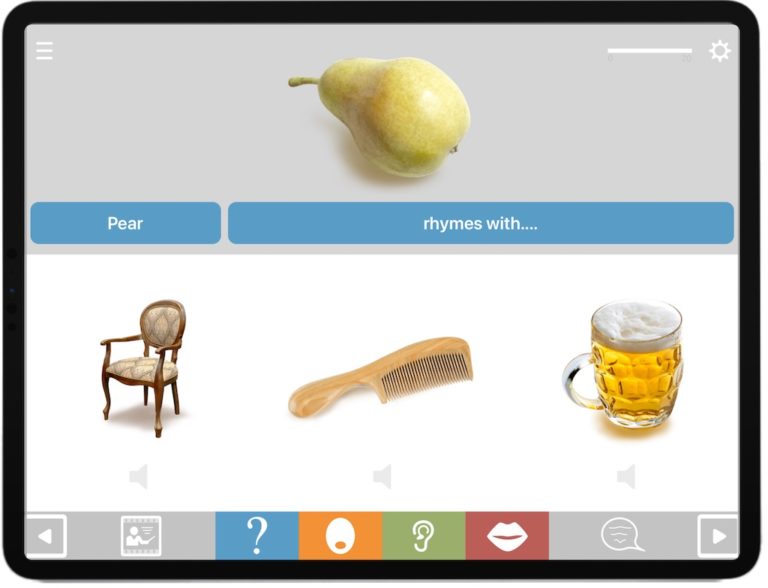What is apraxia of speech?
Apraxia of speech is a term used to describe a discrepancy between the sounds of a word as you “hear them” in your head and the sounds of the word as they emerge from your mouth. But the discrepancy in apraxia isn’t due to muscle weakness, but to “crossed wires” in the messages from the brain to the mouth.
How do you know if you have apraxia of speech?
Apraxia of speech is notoriously difficult to diagnose with confidence, partly because it’s most often suspected in people who also have at least some degree of aphasia. If you have aphasia, it’s quite likely that the sounds of the words in your head will themselves be unstable. This makes it very hard to establish how much of your difficulty saying words is down to instability of internal sounds and how much is down to translating these sounds into the physical movements for speech.
How can we tell how stable the sounds are in your head? Cuespeak contains one module designed specifically to shed some light on this: Rhyme Judgement.
In the Rhyme Judgement module you see a picture (such as a pear in the example below) and have to decide which of three other pictures rhymes with that word – in the pear example (below) the options are chair, beer and comb. If you can do this reliably across a number of pictures, it illustrates that you can “hear” the sounds of the words clearly in your head, regardless of whether or not you can actually say the words.
It’s rare for people to be able to succeed in this task and yet be unable to say the words in question. In other words, it’s rare for people to have apraxia of speech without an instability of the underlying sound structure.
In the Rhyme Judgement exercise, success is, as often, more informative than failure. Success illustrates that you have the sound of the word clearly in your head. Failure could result from not recognising the pictures, not knowing anything about the sounds of word, knowing something about the sounds of the word but not enough to succeed, not understanding what the task requires or not understanding the concept of rhyme.

How does apraxia therapy differ from aphasia therapy?
In general, apraxia therapy focusses more on the mechanical aspects of speech, while aphasia therapy focusses more on the internal aspects of language processing. But the division between speech and language is not clear cut.
There are complex interactions between language and speech, meaning that in practice there is often considerable overlap between the focus of each. So there might be a case for working on “articulation” even for someone whose primary difficulty is at the level of internal sounds, just as much as someone we consider to have apraxia is likely to benefit from therapy to stabilise internal sounds.